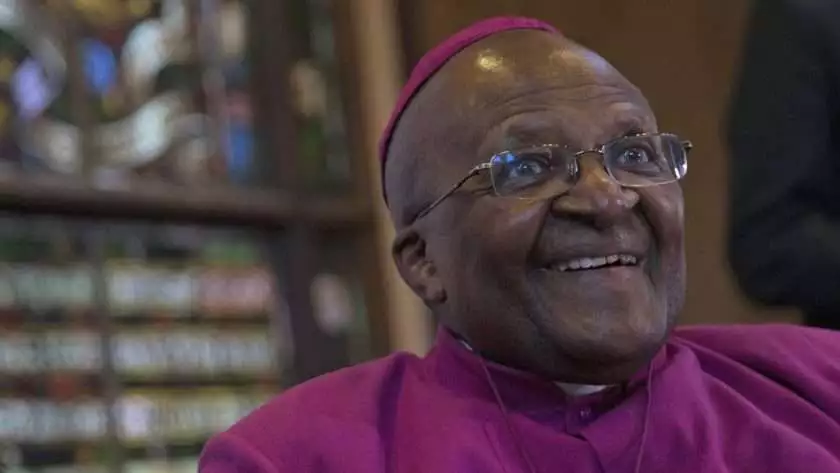By James Orji
Archbishop Desmond Tutu, South African Bishop, is dead. The demise of the apartheid activist was announced by the Bishop of Johannesburg, Stephen Moreo, via his official Twitter handle on Wednesday.
“ATTENTION. The Anglican Diocese of Johannesburg receives now the sad news of the death of our dearest Archbishop Desmond Tutu.” He was 90 years old.
Tutu was renowned for his work as an anti-apartheid and human rights activist. Between 1985 to 1986 he was the Bishop of Johannesburg from and then the Archbishop of Cape Town from 1986 to 1996. He was the first black African to hold both positions.
According to Wikipedia, Tutu was born of mixed Xhosa and Motswana heritage to a poor family in Klerksdorp, South Africa. Entering adulthood, he trained as a teacher and married Nomalizo Leah Tutu, with whom he had several children. In 1960, he was ordained as an Anglican priest and in 1962 moved to the United Kingdom to study theology at King’s College London.
In 1966 he returned to southern Africa, teaching at the Federal Theological Seminary and then the University of Botswana, Lesotho and Swaziland. In 1972, he became the Theological Education Fund’s director for Africa, a position based in London but necessitating regular tours of the African continent. Back in southern Africa in 1975, he served first as dean of St Mary’s Cathedral in Johannesburg and then as Bishop of Lesotho; from 1978 to 1985 he was general-secretary of the South African Council of Churches. He emerged as one of the most prominent opponents of South Africa’s apartheid system of racial segregation and white minority rule. Although warning the National Party government that anger at apartheid would lead to racial violence, as an activist he stressed non-violent protest and foreign economic pressure to bring about universal suffrage.
In 1985, Tutu became Bishop of Johannesburg and in 1986 the Archbishop of Cape Town, the most senior position in southern Africa’s Anglican hierarchy. In this position he emphasised a consensus-building model of leadership and oversaw the introduction of female priests.
Also in 1986, he became president of the All Africa Conference of Churches, resulting in further tours of the continent. After President F. W. de Klerk released the anti-apartheid activist Nelson Mandela from prison in 1990 and the pair led negotiations to end apartheid and introduce multi-racial democracy, Tutu assisted as a mediator between rival black factions. After the 1994 general election resulted in a coalition government headed by Mandela, the latter selected Tutu to chair the Truth and Reconciliation Commission to investigate past human rights abuses committed by both pro and anti-apartheid groups. Since apartheid’s fall, Tutu has campaigned for gay rights and spoken out on a wide range of subjects, among them the Israeli–Palestinian conflict, his opposition to the Iraq War, and his criticism of South African presidents Thabo Mbeki and Jacob Zuma. In 2010, he retired from public life.
He was awarded the Nobel Peace Prize in 1984.





